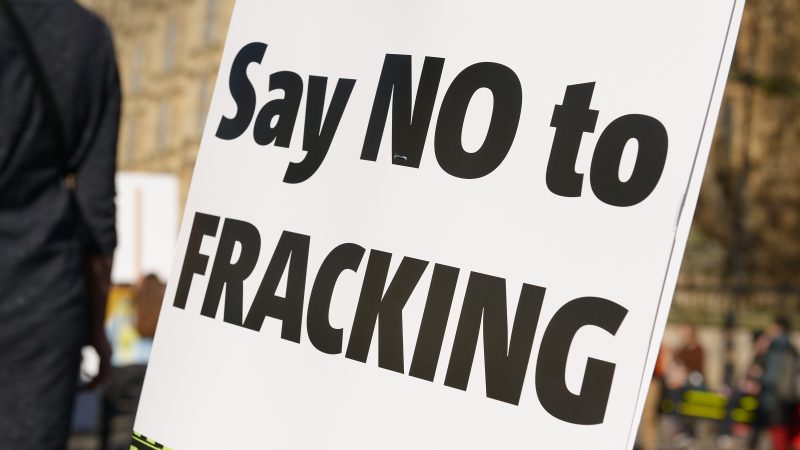
Liz Truss has entered No 10 like Margaret Thatcher on steroids. Dressed in an eerily similar fashion and with the same cruel demeanour, Truss’s Thatcher tribute act has involved cutting taxes for the richest whilst saddling workers with more debt, scrapping the cap on bankers’ bonuses and, at the same time, bashing those reliant on welfare. Yet, is there a more dangerous and foolhardy new policy than deciding to lift the ban on fracking and allow 100 new oil and gas fracking licenses? It is very unlikely indeed.
Fracking involves deep drilling into the earth, before directing a highly pressurised mixture of chemical into rock to extract shale gas. One does not need a degree in geology to recognise how dangerous this might be. Indeed, in 2019 there was a record-breaking earthquake in Lancashire (2.9 on the Richter scale) which led to a government suspending fracking – until now. This followed a seven-year moratorium on fracking following an earthquake in the same area in 2011. It was Alfred Einstein defined insanity as “doing the same thing over and over and expecting different results”. The government’s fracking policy, in the words of Einstein, appears to be ‘insane’.
But don’t worry, the government has put its best man on the job. Jacob Rees-Mogg, the Shadow Business secretary, has assured us that “tolerating a higher rate of risk and disturbance” is in the national interest. This is a remarkable U-turn. After all, every Conservative MP stood on a manifesto in 2019 that stated that “we will not support fracking unless the science shows categorically that it can be done safely”.
What does the science show? The British Geological Survey have this week published a report looking at the understanding of “induced seismicity from hydraulic fracturing in shales”, otherwise known as the causal link between fracking and earthquakes. This report sounds a note of real caution: there have likely been thousands more smaller magnitude events than we recognised previously and our ability to predict the onset of earthquakes remains limited. Putting it bluntly, we don’t know what might happen if we start fracking again but there is evidence to suggest it could be very dangerous indeed.
So is it worth the risk? Shall we ‘tolerate the risk’ as Rees-Mogg asks of us? There is no evidence to suggest this will help families with rising energy bills. Only a few months ago, the now Chancellor told us that “no amount of shale gas will help lower the price of European gas” – and he was right then. Professor Jon Gluyas, Director of the Durham Energy Institute, says: “Fracking won’t work. We have the wrong kid of shale and geology which is far too complex.” Even the founder of Cuadrilla, the renowned fracking company, has said the government’s support is merely a “political gesture”, as fracking operation in the UK are too complex and will have no, or little, effect on supply. The government’s own adviser on climate change, Lord Deben, said there is no evidence that the UK maximised fracking it would have a meaningful impact, or any, on the international price of gas.
We know that fracking, therefore, is potentially very dangerous – and we know that it will not assist families facing enormous energy bills. But perhaps the most worrying aspect is that to resume fracking is to undermine our attempts to cut carbon emissions to tackle the existential crisis facing our plant: climate change. Producing more natural gas would increase our greenhouse gas emissions at precisely the moment we need to be fully focused on turning policy towards a focus on greener strategies for energy supply. We need to be focusing on wind turbines, solar panels and a long-term strategy for nuclear power, whilst assisting families with insulation and encouraging community own energy companies.
One wonders if Truss’s comments on fracking is sending a signal: we will do anything to help with gas bills and rip up regulations to grow the economy. The British people do not buy it. They know that after 12 years of a stagnant economy, with wages falling in real terms, things have to change. But a political agenda that harks back to the 1980s is not the way forward: instead, we need to build a modern, green economy, which respects our planet and the people that live on it. Only then, will we be able to prosper.




More from LabourList
A year in power: The cabinet on their proudest wins and favourite moments
‘One year on, Labour still hasn’t reckoned with collapsing trust in politics’
‘I’m the Labour MP who beat Liz Truss. Here’s how the campaign to unseat her unfolded’